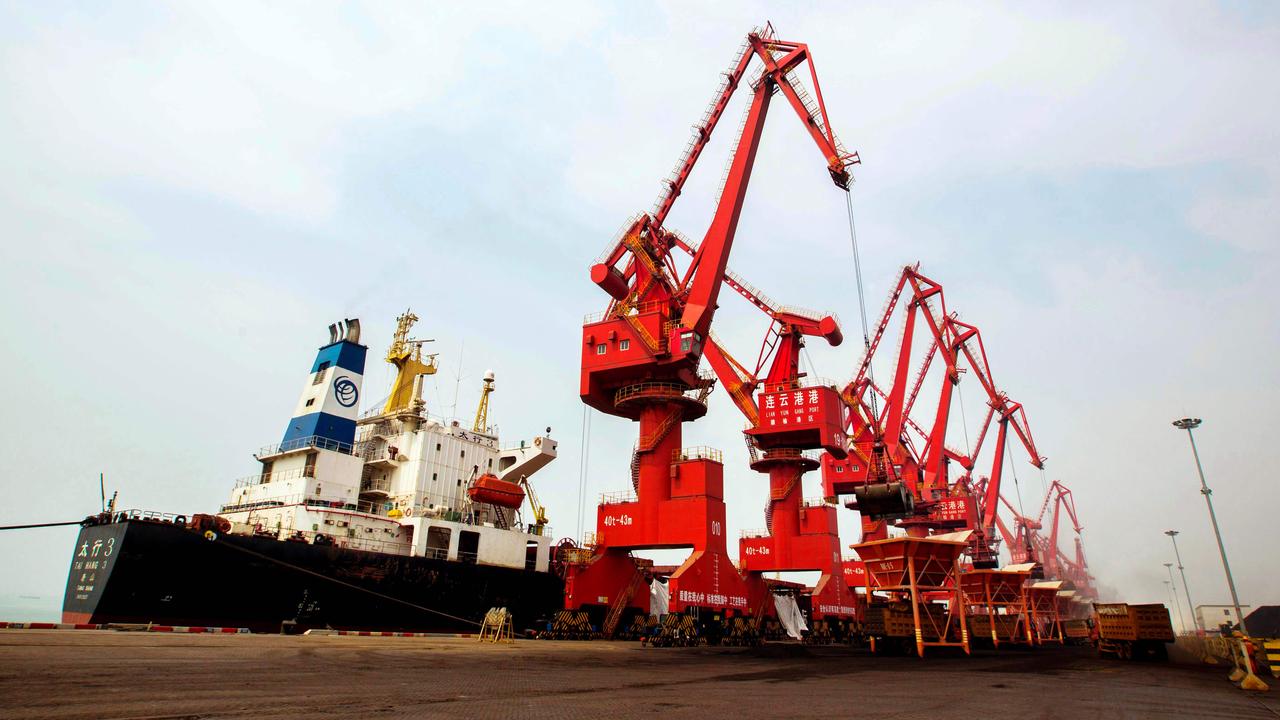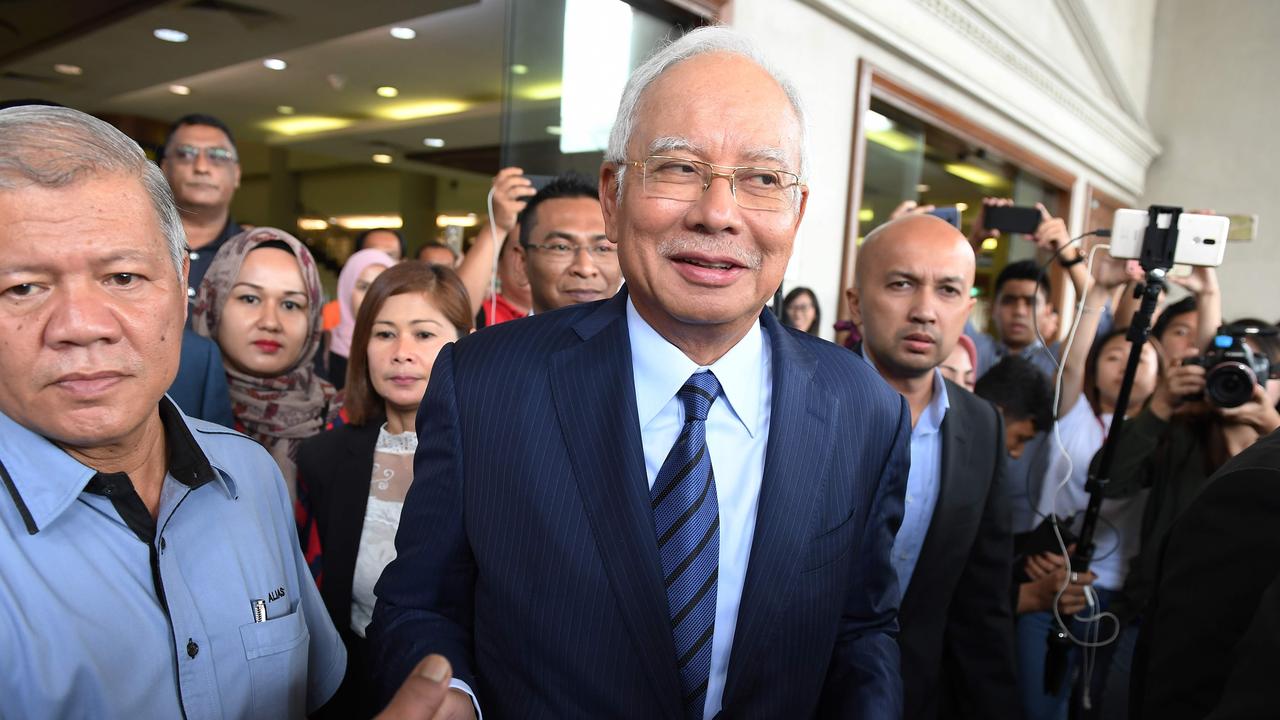China wields trade might
The Korean crisis is already shutting down shops and jobs.

The story of South Korea’s travails with China is a salutary one, with key ramifications for Australia.
It is about the capacity of the North Korean crisis, the joker in every pack of cards in play in our region, to cause ever-deepening problems for even the largest of companies, even though they conduct no business with Pyongyang.
It is about Beijing’s capacity and preparedness to co-ordinate efforts to send a message — if deemed important enough strategically — even to those who seem among its closer friends, and even though it appears itself to be an economic loser as a result.
It is about the risks run by companies that depend especially heavily on business with a country with such a capacity to tone down or cease corporate activities through political direction — where crucial decisions may be made that are way beyond any firm’s ability to control or even significantly influence.
It is about, ultimately, how a society determines its priorities when there is no easy solution, no how-to guide, no win-win path.
Just a year ago, everything seemed set up for continuing success between South Korea and China.
South Korea’s exports to its neighbourreached $166 billion, almost exactly twice those of Australia.It had cemented its position as China’s fourth-biggest trading partner.
Its president at the time, Park Geun-hye, had gone out on a limb in September 2015 to attend the grand military parade in Beijing to mark the 70th anniversary of victory over Japan — the only leader of a US ally to do so.
This year was being set up for extended celebrations for the 25th anniversary of diplomatic ties between South Korea and China.
But all this has been shredded thanks to the ever-baleful influence of the Kim regime in North Korea.
For South Korea has, in an on-again, off-again, jerky pattern, invited the American military to install a Terminal High Altitude Area Defence system that claims to be able to spot missiles heading its way and to eliminate them while still at their peak height.
It is the spotting that’s the problem, not the eliminating.
For China — and Russia, which has similar issue with THAAD deployments in Europe — is convinced that in order to detect a missile firing early enough, this new system deploys such immensely powerful radar that it can scan not only North Korea’s potential launch sites but also those countries’ own military, including nuclear, capacities.
Clearly, a big issue.
Constant, repeated warnings about repercussions were made by Beijing, which gave Seoul much pause for thought. But eventually, as the threats of “Supreme Leader” Kim Jong-un kept ratcheting up and attempts by Seoul to kickstart negotiations were spurned, the system has been deployed — on a temporary basis — in a site in South Korea.
Immense collateral damage is being caused to South Korean corporations, and even to a degree to South Korea’s previous massive “soft power” in China — arguably stronger than that of any other single country — in the process.
The huge Lotte family-based conglomerate (or chaebol) ran 99 hypermarkets throughout China before this year’s politically-driven crunch. It was targeted especially heavily because it happened to own the golf course that Seoul decided to use to install the THAAD system.
It has had to close 87 of those hypermarkets in the past six months — not primarily because of Chinese consumer-led boycotts, which have been encouraged by Beijing, but because Chinese officials have suspended their operations claiming violations of by-laws and have halted renovations or new projects.
The company recently injected $380 million to try to keep the show on the road, with losses this year expected to top $1bn. But Goldman Sachs is also being hired to hawk around much or maybe all of this huge China business — bigger than any owned by any Australian company in the country — for sale.
As for most South Korean conglomerates, China is Lotte’s biggest overseas market.
Emart, a Korean discount chain, announced its withdrawal this month from China after reaching 30 stores, developed patiently over 20 years.
Another chaebol, Hyundai, saw its sales of cars — its core business in China, where it is the third-biggest foreign carmaker — crash 55 per cent from March to July against the previous year, at a time when competitors’ sales edged up.
Hyundai was forced to suspend its production for the last week of August because its Chinese joint venture was temporarily unable to pay a key supplier.
Its Kia subsidiary, also hit, cut production at its three Chinese factories, which employ about 30,000 people.
The THAAD fallout has also hit South Korea’s immense “soft power” with China. Tourist numbers to South Korea — Chinese accounted for almost half the total of foreign visitors last year — have fallen 40 per cent this year. K-pop performers have had concerts cancelled, cosmetic promotions have suddenly had to be rescheduled, TV soaps are no longer ubiquitous.
Beijing officially denies there is an official campaign, saying this is all a manifestation of individuals demonstrating through their changed preferences, their personal disgust with the deployment of THAAD.
China is certainly also implementing tough sanctions against North Korea, but that trade and mutual investment, given its comparative size, was never anywhere near the importance of that with South Korea.
Officially, China is making much of its championing “economic globalisation” in distinction to Donald Trump’s apparent protectionism. These “sanctions with Chinese characteristics” against South Korea tell a different story.
A similar recent campaign worked swiftly to bring Mongolia to heel, causing it to vow never to host another visit by the Dalai Lama. In South Korea’s case, THAAD’s “temporary” deployment is unlikely to be terminated soon, but Seoul may find other ways to mollify Beijing. If so, past evidence — as in anti-Japan measures — shows that normal relations can be restored surprisingly swiftly.
Australia is unlikely ever to find itself so severely targeted, but these examples do raise keen questions about eggs and baskets, and about companies’ capacity to persuade Canberra to tailor policies and even rhetoric to avoid such risks.




To join the conversation, please log in. Don't have an account? Register
Join the conversation, you are commenting as Logout